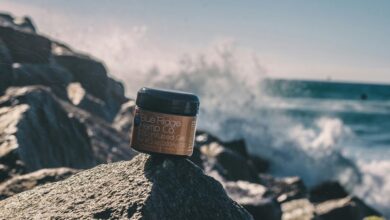Is Cbd Legal in Texas

The legality of CBD in Texas is a nuanced topic influenced by both federal and state regulations. Under the 2018 Farm Bill, CBD derived from hemp with less than 0.3% THC is permitted. However, Texas imposes specific licensing requirements for the sale and distribution of these products. Understanding these regulations is crucial for consumers and businesses alike. What implications do these laws have for the CBD market in Texas?
Understanding Federal Laws on CBD
What constitutes the legal status of CBD at the federal level?
The CBD classification hinges on its source; derived from hemp, it remains legal under the 2018 Farm Bill, provided it contains less than 0.3% THC.
This framework carries significant legal implications, influencing commerce, regulation, and consumer access, while ensuring that individuals seeking CBD products operate within the law's parameters.
Texas State Regulations for CBD
Texas has established a regulatory framework for CBD that aligns with federal guidelines while introducing specific state-level nuances.
Under Texas regulations, the sale and distribution of CBD products require proper CBD licensing, ensuring compliance with quality and safety standards.
These measures aim to facilitate a responsible market while safeguarding consumer interests, reflecting a commitment to both individual freedom and public health in the evolving cannabis landscape.
Common Misconceptions About CBD Legality
How can common misconceptions about CBD legality influence public perception and behavior?
CBD myths often blur the legal differences between hemp-derived products and those containing THC. Such misunderstandings may lead individuals to avoid beneficial CBD options, fearing legal repercussions.
Furthermore, these misconceptions can hinder responsible use, perpetuating stigma and misunderstanding surrounding a substance that is increasingly recognized for its therapeutic potential.
Where to Buy CBD Legally in Texas
Misunderstandings surrounding CBD legality can significantly impact consumer behavior, leading individuals to seek out reliable sources for hemp-derived products.
In Texas, consumers can find CBD retailers in health stores, specialty shops, and online platforms. These retailers offer a variety of CBD product types, including oils, edibles, and topicals, ensuring that individuals have access to legal options that meet their wellness needs.
Conclusion
In conclusion, the legal landscape of CBD in Texas is akin to a well-tended garden, flourishing under federal guidelines and state regulations. As long as CBD products are derived from hemp and adhere to the stipulated THC limits, they can thrive in the market. However, consumers must remain vigilant, ensuring they purchase from licensed vendors to navigate this evolving environment safely. Understanding these regulations is essential for fostering a responsible and informed approach to CBD in Texas.






